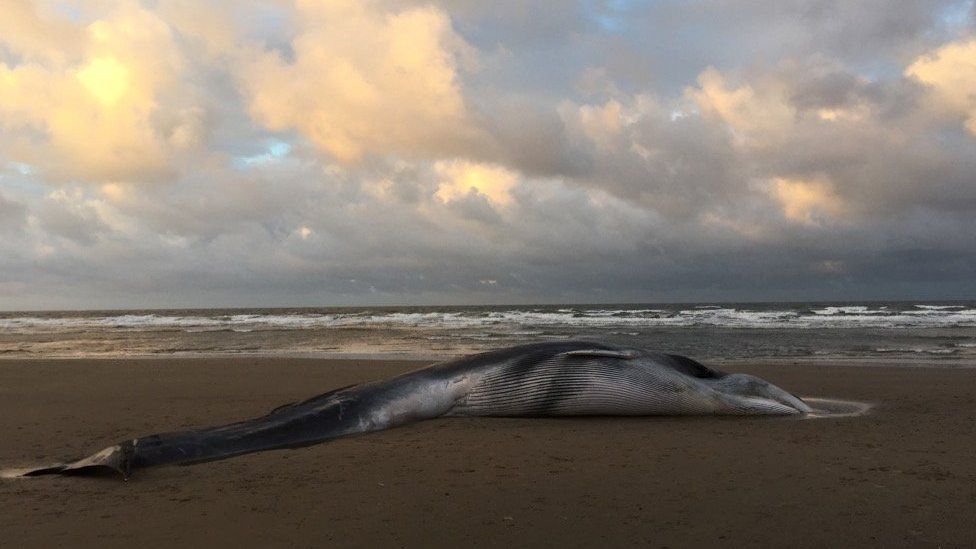Fin whale washes up on Norfolk beach
- Published

A rare 40ft (12m) fin whale has been found dead on a Norfolk beach.
The whale was discovered by wardens at the Holkham National Nature Reserve on the north Norfolk coast.
The Holkham Estate said it believed the animal was a fin whale and the Cetacean Strandings Investigation Programme (CSIP) would be carrying out a post-mortem to establish the cause of its death.
Plans were under way to remove the whale from the beach.
A spokeswoman said the area remained open "but we advise the public not to venture close to the carcass and to keep dogs on leads".
Penny Clarke photographed the whale on the shore
Images of the whale were taken by bird photographer Penny Clarke, from King's Lynn, who was out walking on the beach when she came across the animal.
"It's really sad. It looked really fresh like it had only just washed up. It's an amazing creature, just so sad to see it like this," said Miss Clarke.
A total of 30 sperm whales have died in the North Sea this year.
Six of the sperm whales and a minke were found dead on beaches in Norfolk and Lincolnshire. The others were found beached in France, Germany and the Netherlands.
Dr Peter Evans, director of the Sea Watch Foundation, said they had probably died due to them straying into shallow waters while hunting squid.
Fin whales
- Listed as endangered by the International Union for Conservation of Nature (IUCN)
- Grow to about 26m (85ft) long and can live to about 90 years old
- They can weigh up to 74 tonnes and live on a diet of small fish, crustaceans and squid
Dr Ben Garrod, of Anglia Ruskin University said: "If is is a fin that's very, very surprising.
"Fin whales are rarely, if ever, seen in the North Sea and are instead found more regularly, but still not commonly, off the western British Isles.
"Without any more information right now, it's impossible to say why it might have been there or why it died."
- Published4 October 2016
- Published8 February 2016
- Published9 February 2016